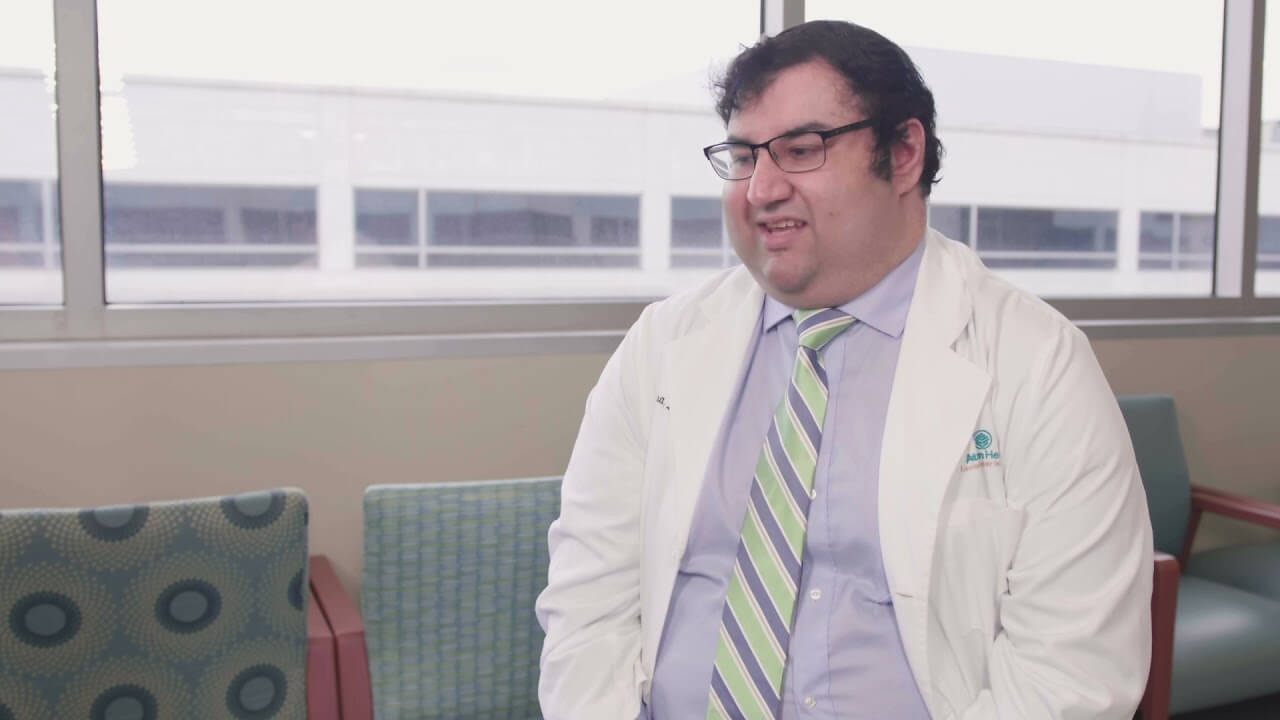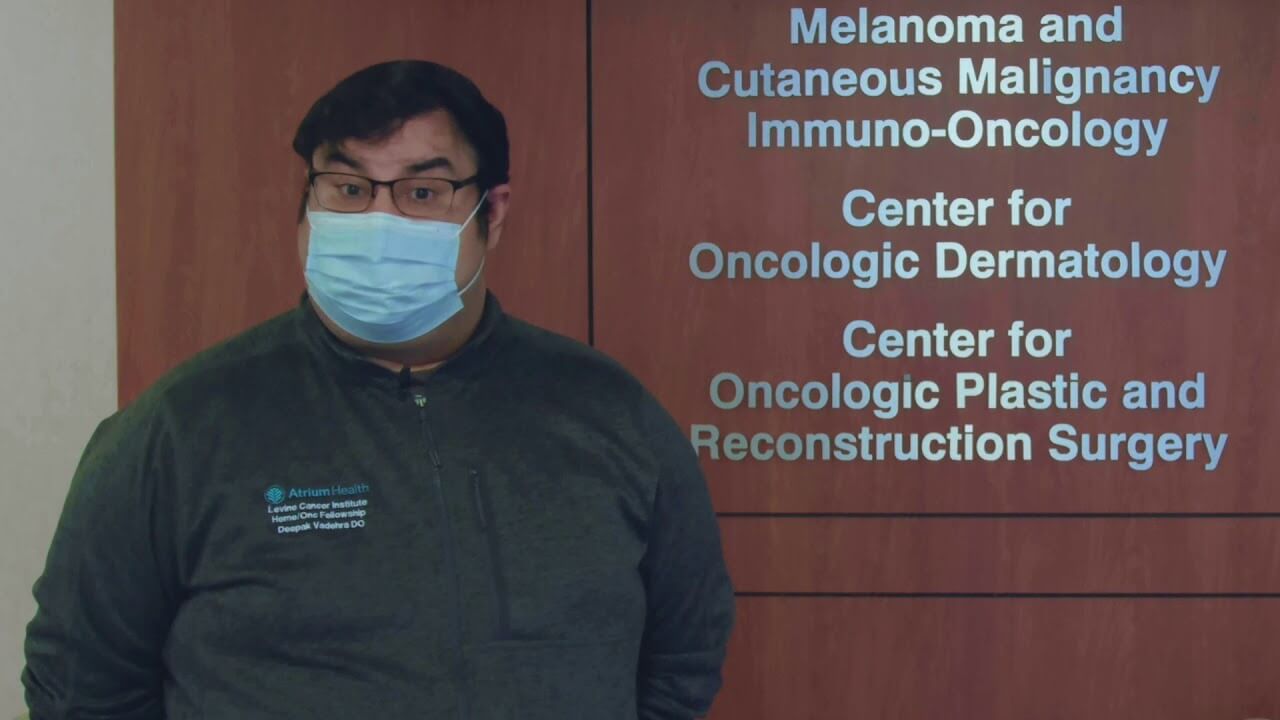Hematology & Oncology Fellowship Program
An Inside Look at the Hematology and Oncology Fellowship
-

Dr. Jimmy Hwang
Program Director
- Director of the Hematology/Medical Oncology Fellowship at LCI and Chief of GI Medical Oncology section since joining the Levine Cancer Institute in September 2013.
- He received his medical degree from the University of Pittsburgh School of Medicine.
- Completed his hematology/medical oncology fellowship at the University of Pittsburgh Cancer Institute.
- He was a member of the faculty at Georgetown University Medical Center from 2001-2013. He served as the Program Director of the Fellowship program in Hematology/Medical Oncology from 2006-2013.
-
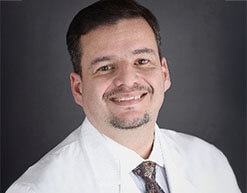
Dr. Dan Carrizosa
Associate Program Director
- Chief of Head/Neck Oncology and Medical Director
- He received his medical degree from the University of North Carolina; Chapel Hill School of Medicine.
- Completed his hematology/medical oncology fellowship at the University of North Carolina.
- He has active research interests in thoracic and head/neck malignancies.
-
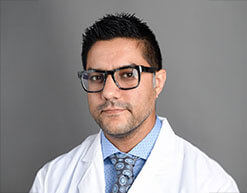
Dr. Nilay Shah
Associate Program Director
- Specialty: Hematology, Leukemia
- Education:
- Medical School: University of Sint Eustatius
- Residency: Charleston (WV) Area Medical Center
- Fellowship: West Virginia University
Application Criteria
During our recruitment season, all our Fellowship interview days will be conducted VIRTUALLY. We will be reviewing applications through the Electronic Residency Application Services (ERAS) . We accept applications only from participants in the National Resident Matching Program (NRMP) through the Electronic Residency Application Service (ERAS). Our interview season will run from mid-September through the end of October. There will be limited Interview slots making the new “Signaling System” very important. We are following the AAIM and AAMC guidance on the signaling of home/away programs in the supplemental application. If you are strongly interested in our program, please send a signal, including those who consider us your home program and/or those who have completed a rotation here. All applications that send signals will be prioritized for the first review.
Due to an extraordinarily high application volume, Please note that sending a signal does not guarantee an interview offer.
We rely on the integrity of the application process to ensure that candidates are a good fit for our program. We request that all applicants refrain from using AI software to create any part of your application materials.
Atrium Health Levine Cancer Institute
As one of the nation’s leading cancer centers, Levine Cancer Institute (LCI) combines two important bodies of work – academics and oncology research – with compassionate, community-based cancer care. With physicians and faculty members at 25+ sites throughout North and South Carolina, LCI comprises a variety of socioeconomic areas and practice types, providing fellows with exposure to the whole range of clinical care. Practicing hematologists and oncologists will experience office-based and hospital-based practice in urban, suburban and rural settings.
Learn moreAtrium Health Carolinas Medical Center
Carolinas Medical Center (CMC), the flagship hospital of Atrium Health, is a world-class facility that offers a full range of services to the Charlotte community and beyond. A national leader in specialized care for a broad range of medical conditions, CMC is the largest research hospital in the region and serves as one of North Carolina’s five Academic Medical Center Teaching Hospitals.
Learn moreWake Forest School of Medicine - Charlote
Atrium Health Carolinas Medical Center has developed a strategic partnership with Wake Forest School of Medicine to bring a 4-year medical school campus to Charlotte. Currently, CMC serves as the largest clinical branch campus for Wake Forest medical students with plans to enroll the first class of MS-1 students in the new 4-year medical school by 2024.
Learn moreVeterans Affairs Charlotte Health Care Center
The Veteran’s Affairs Charlotte Health Care Center is an extension of the W.G. (Bill) Hefner VA Medical Center. The state-of-art five-story facility offers primary care and specialty services, including oncologic care with an infusion center.
Learn more-
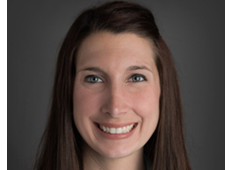
"Levine Cancer Institute was my top choice for fellowship. Although I could list a plethora of reasons as to what makes this program excellent, the two main factors revolve around the people and the vast clinical exposure. The staff are supportive and genuinely invested in our well-being and future success. Overall, I feel part of a wonderful team that is not only fostering my education and clinical skills, but also providing great care to all of our patients.”
Ashley Matusz-Fisher, MD
Hematology & Oncology Fellow, Class 2022 -
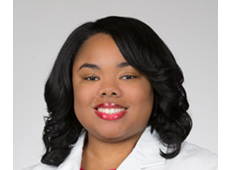
“Fellow education is a priority, and our exposure to a variety of pathologies is unparalleled. This, coupled with the collegial atmosphere and open-door policies with attendings, makes Levine Cancer Institute a wonderful place to train.”
Daphanie Taylor, MD
Hematology & Oncology Fellow, Class of 2021 -
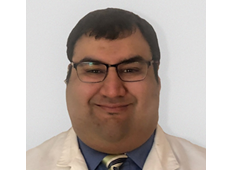
"I knew that I wanted to be in a training environment that was supportive, evolving and, most importantly, would help me achieve my goals for fellowship and position me well for my future career. Being from the Northeast, I did not know much about Charlotte, but once I came to interview at Levine Cancer Institute, I knew this was the place for me. My attendings care about me and my success and teach in an atmosphere that's very conducive to learning. I have been incredibly supported and have been able to achieve much during my fellowship, and I would pick this program again without hesitation.”
Deepak Vadehra, DO
Hematology & Oncology Fellow, Class of 2021
Program Curriculum
Our innovative 3-year program explores all aspects of hematology and oncology, exposing fellows to extensive clinical and research opportunities.
Throughout the curriculum, fellows will have half-day continuity clinic experience with escalating levels of responsibility in the management of patients. Fellows will have a core lecture series held weekly during the fellowship. There are Multidisciplinary Tumor Boards each week, in which fellows are expected to be active participants.
Also, each month there will be a fellow-run journal club, a hematopathology conference where the fellows present on patients and topics of interest, and a president’s conference led by the president of LCI with the fellows covering various patients and general topics of interest. Fellows will find a flexible curriculum designed to support their career aspirations, whether in patient care or research.
Rotations
A basic breakdown of activities by year is as follows:
Year 1:
- 1 month of a unique month-long introductory course to Hematology/Oncology
- 4 months of outpatient oncology and 2 months of outpatient hematology
- 4 months of inpatient hematology (including 2 months on the malignant hematology service which involves transplant and cellular therapy care and 2 months on the consult service) and 1 month of inpatient oncology
Year 2:
- 2 months of inpatient hematology (including 1 month of consult), and 1 month of inpatient oncology
- 1 month of outpatient hematology and 2 months of outpatient multidisciplinary oncology
- 1 month of research
- 5 months of elective time (research or clinical), determined in conjunction with program directors
Year 3:
- 1 month of supportive oncology
- 1 to 3 months of community and VA- based care
- 9 to 10 months of elective time (research or clinical), determined in conjunction with program directors
During year 3, fellows planning to pursue a career in clinical medicine will have the option to complete additional disease-specific and multidisciplinary clinical rotations, which are organized in disease-specific and multidisciplinary rotations.
During the elective time, fellows may pursue research for up to 15 months. Thus, fellows may have up to 16 months of protected research time (aside from continuity clinic), if deemed appropriate and necessary after discussion with the program directors and research mentor. If their research project has been completed, and especially if fellows plan to pursue careers in clinical medicine, they may continue with further clinical rotations, which are organized in disease-specific and multidisciplinary rotations.
A distinct element of the LCI Hematology and /Medical Oncology fellowship program is the emphasis on multidisciplinary care of patients with malignancies, as demonstrated in the second-year multidisciplinary rotations in thoracic and breast cancers. During these rotations, fellows will primarily rotate with medical oncologists, but will also learn from surgeons, radiation oncologists and other appropriate specialists, such as pulmonologists and genetic counselors. Fellows may participate in similar rotations in other malignancies during the elective time.
Rotations and Electives
- Inpatient Malignant Hematology Service (includes Transplant and Cellular Service)
- Inpatient Hematology Consult Service
- Inpatient Oncology Consult Service
Medical Oncology
- Breast Medical Oncology
- Gastrointestinal Medical Oncology
- Genitourinary Medical Oncology
- Gynecological Oncology
- Head and Neck Medical Oncology
- Melanoma and Immunotherapy Medical Oncology
- Neuro-Oncology
- Thoracic Medical Oncology
- Sarcoma Medical Oncology
- Community Oncology
- Leukemia and Marrow Failure
- Lymphoma
- Plasma Cell Disorders
- BMT (including full range of transplants, CAR T-cell therapy and the latest clinical trials)
- Benign Hematology
- Hemophilia Treatment Center
- Sickle Cell Program
- Supportive Oncology, including:
- Palliative medicine
- Genetics
- Geriatric clinic
- Psychology and psychiatry
- Integrative medicine
- Cardio-oncology
- Survivorship
- Radiation Oncology
- Surgical Oncology

